Jack and Gloris Dunnous
Narrative written by Ann de Forest
Photos by Dave Tavani
The colorful, intricately patterned Persian rug that hangs on the wall of Jack Dunnous’ Philadelphia dining room wall is a family heirloom, one of the few mementos Jack has from his childhood. For Jack, the rug evokes his grandfather’s sumptuous gardens in Baghdad, planted and cultivated every year by a Persian gardener on the two acres surrounding the family home. Fruit trees — oranges, lemons, and dates – filled one garden. The other was devoted to flowers. Jack’s grandfather, he says, loved flowers.
When Jack reminisces about his long life, he weaves a tapestry as detailed and elaborate as that rug, drawing threads from history, from family legends, and from his own childhood memories. Napoleon, King Cyrus, Queen Esther, the cholera epidemic of 1744, and the Babylonian exile that first brought the Jews to the Tigris-Euphrates Valley several millennia ago add texture and color to Jack’s narration. He talks about his upbringing as the grandson of a prominent Jewish citizen of Baghdad, and brims with pride when he tells of how the city’s three religious leaders – rabbi, imam, and patriarch – would pay honors to his grandfather on the Jewish High Holidays. He describes the rigorous education he received at the French Alliance School, where his father and grandfather also studied. There, under a system established by Napoleon when he conquered the Middle East, Jewish boys learned Arabic, French, and English to supplement the Aramaic they spoke at home. Jack’s own accomplishments – his engineering studies in America, first at Berkeley, then MIT, then Cornell, his marriage, his children, his successful career as an engineer and entrepreneur in Philadelphia, and now his last decades of retirement, enjoying music, art, and long establish friendships – are just one pattern in the larger tapestry that encompasses the entire, now fading, history of his homeland.
Jack’s fondest memories are of the enormous house he grew up in, which his grandfather built at the turn of the 20th Century. “Why do you need such a big house?” people asked his grandfather at the time. “For my family to live in,” he answered. By the time Jack was born in 1925, several generations lived together within the spacious complex. Jack grew up happily alongside 11 cousins. He remembers the entire extended family eating together in a common dining room, the meals prepared by his grandfather’s cook. “He just built this whole community of his own,” Jack says, admiringly. “When he died at the age of 89, he had all these people around him. He wasn’t alone.”
At 92, Jack has surpassed the age when his grandfather died. In Philadelphia, he too is surrounded by family, though his family circle is considerably smaller. He and his wife Gloris don’t live under the same roof as their daughter and son, daughter-in-law, and granddaughter. But they do all live within blocks of each other in Logan Square. Every Sunday, the family gathers at a long table looking out on the Schuylkill River and the Philadelphia Museum of Art.
Jack was 19 when his grandfather died, and his family moved to a smaller, more manageable house of their own. Not long after, Jack applied to engineering programs in the United States and was accepted at the University of California, Berkeley. In 1949, he boarded a plane for New York, spent the night with his cousins who lived in a neighborhood of Iraqi Jews in Queens, and then took the train to California. Six friends from his small high school class met him at the station. They had all left Baghdad to study engineering in America. Two years later, when Jack transferred to MIT, he found another group of Baghdad friends – “a Jewish student, two or three Muslims, and one Christian Lebanese. We went around together as if nothing had happened back home.”
By then, there was no “back home” for Jack to return to. In 1948, with the founding of the State of Israel, all Jews were forced to leave Iraq and most other Arab countries. In 1948, there were 150,000 Jews living in Iraq, three years later there were just a handful (today, according to a recent article in the New York Times, there are 10). Like most Iraqi Jews, Jack’s family had been in Baghdad for millennia, tracing their roots back to the Babylonian exile. “My family never thought they would leave Baghdad,” says Jack. “I don’t think any of the Jews thought they would leave.” Jack’s family stayed even after two airlifts transported most of the Jews who remained to Israel. They finally acknowledge they could no longer call Baghdad home because, says Jack, “they couldn’t survive and do business. … Some sold out and had their money. My father lost everything. He bought things like real estate, that you cannot take with you.”
Jack wouldn’t see his family again for 19 years.
Meanwhile, he had become accustomed to life in the U.S. He spoke English almost exclusively, the common language of his studies, his profession, and his friendships. In his sixth year in America, he had just been accepted at Cornell for graduate school, when he discovered his Iraqi passport had expired. Throughout his schooling, the U.S. government had been routinely renewing Jack’s passport every year. That year, Jack’s application was denied. He faced a dilemma. He could become an Israeli citizen, but then he would be forced to leave America, the country he now considered home. He didn’t know what to do. A friend suggested Jack contact one of his Massachusetts senators who agreed to intervene on his behalf. The senator introduced Jack’s request for green card status in a private bill that vouched for Jack’s character and professional expertise. The private immigration bill (an option no longer available after 9/11) passed, Jack received his green card, and moved to Ithaca for graduate school. A few years later he returned to Cambridge, having received a prestigious post-doctoral fellowship at MIT. He still has all of his correspondence from his passport crisis, neatly filed in a brown leather ring binder.
On a visit to New York, he saw some old family friends from Iraq, Jews from the port city of Basra, who had moved to Geneva, Switzerland instead of Israel. Their daughter Gloris accompanied them, and Jack happily served as tour guide to his adopted country.
Gloris and her family had experienced their own saga of displacement and upheaval. She was nine years old in June 1941, when anti-Jewish riots erupted in Baghdad and Basra. Mobs protesting the fall of Iraq’s pro-Nazi government destroyed Jewish homes, ransacked Jewish-owned businesses, including Gloris’ father’s office, and killed at least 180 people. The Farhud (the word means “violent dispossession”) is considered the Middle East’s equivalent of Kristallnacht. When violence rocked the city, Muslim neighbors took Gloris’ family into their home until they could safely get away. Gloris’ father, fearing his wife and five daughters would be raped or killed, arranged passage for the family on a British ship to Bombay.
In India, the family found community with other wealthy Jews who had left Iraq. Gloris and her sisters attended a Catholic convent school. “We had to learn English, and we had to learn the Catechism,” she says. Her father remained in Basra. “We always worried we would never see him again,” says Gloris. When the family returned four years later, their father sent them to a British-style boarding school in Alexandria, Egypt. In 1948, as Jews began to flee Iraq and Egypt, the family escaped to Switzerland.
Without a Swiss passport, Gloris was able to study at the University of Geneva but not work. Still, she intended to stay with her family there – until that visit to New York where she met Jack. The two married a month after they met, and Gloris moved to Cambridge.
While she was pregnant with their first child, Gloris had her own passport crisis. She traveled from Cambridge to New York alone to renew her passport at the Iraqi embassy. There, she discovered that Iraq had revoked her citizenship. Her family’s move to Geneva had rendered her stateless. She remembers leaving the embassy confused and distraught, and walking into Central Park. “I had no passport, no name, nothing… . When you lose your citizenship, you don’t have a home that you’re going to go back to. I had no place to go. No real home.” She showed up at a family friend’s doorstep, “shedding tears.” He reminded she did have a home, back in Cambridge with Jack, and put her on the train north. A lawyer eventually helped Gloris resolve her visa status. She was allowed to stay in the U.S., but when her father died, she was not allowed to go to Geneva for his funeral.
Engineers were in demand in 1958. Jack accepted a job in Philadelphia, and he and Gloris moved with their two young children. At first he ran the engineering division of a company that manufactured parts for General Motors. Then, for more than 40 years, he ran a successful business manufacturing colored concrete, based on patented processes he invented. The family lived in a new, modern apartment building on the Benjamin Franklin Parkway, a Beaux Arts boulevard modeled after Paris’ Champs Elysee. Their children could walk to the local Friends’ school, and Gloris and Jack took full advantage of Philadelphia’s abundant cultural offerings, as season subscribers to the Philadelphia Orchestra and members of the Philadelphia Museum of Art. But in the late 1960s, the streets of Philadelphia felt increasingly unsafe. Their son was mugged on his way to school. Jack and Gloris decided to move to the wooded suburb of Miquon, just outside the city.
Their time in the suburbs felt like exile. Both Jack and Gloris had lived most of their lives in cities, and Gloris, who had moved from Basra to Bombay to Cairo to Geneva before settling with Jack in Cambridge had never lived in a place so committed to conformity. Unlike their neighbors, the family came to Center City at least twice a week. As an antidote to suburban life, Gloris applied to Moore College of Art and earned a degree in interior design. She established a practice, and as soon as their daughter graduated from high school, Jack and Gloris moved back to their former Center City neighborhood. They have lived for more than 30 years in a multi-level apartment with terraces overlooking the Schuylkill River and the Art Museum.
Eventually, Jack did get to Israel to visit his family. On his first visit to Tel Aviv, he marveled that the Iraqi immigrants had recreated Souk Hinnouni, the thriving Jewish market quarter of Baghdad, in the middle of Tel Aviv. “It was like being back home,” he said. When they first arrived in Israel, Iraqi refugees, including his own family, were viewed with disdain by the Europeans in the first wave of resettlements to Israel. The Iraqis’ ties to the Arab world were considered suspect, their culture regarded as less sophisticated in the eyes of the European refugees. But then, says Jack, “the Iraqis proved themselves useful.” Like Jack, the Iraqi Jews were fluent in Arabic, French, and Aramaic. They played an important role in the new nation state, as interpreters and guides, both linguistic and cultural.
Now long retired, Jack stays close to his Iraqi friends from his MIT days. They share long phone conversations, mostly talking about U.S. politics. “There’s nothing to talk about Iraq,” he says. “I saw the map of Baghdad the other day. I couldn’t recognize it.”

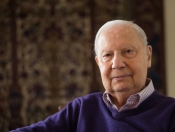
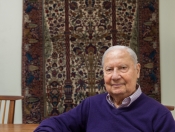
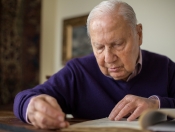
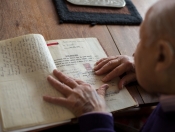
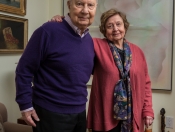
 Emi and Afaq Mahmoud
Emi and Afaq Mahmoud 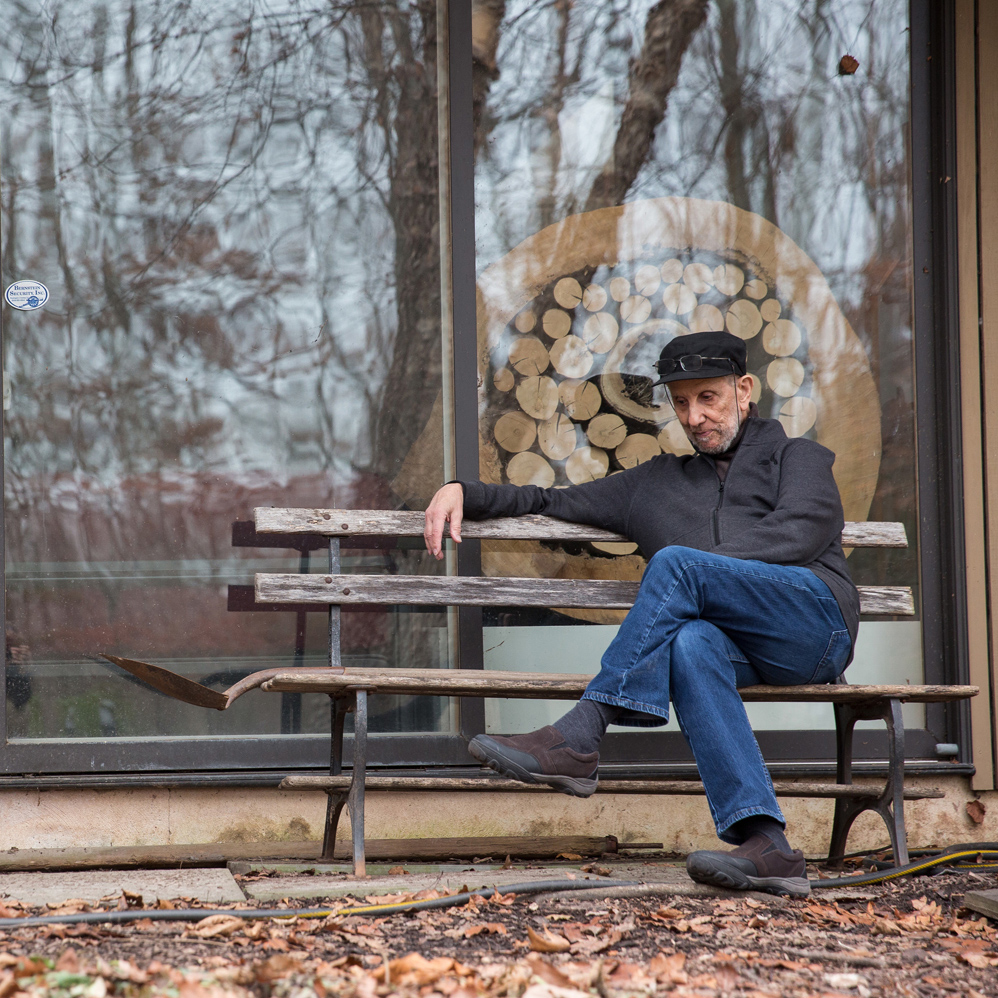 Rajie Cook
Rajie Cook 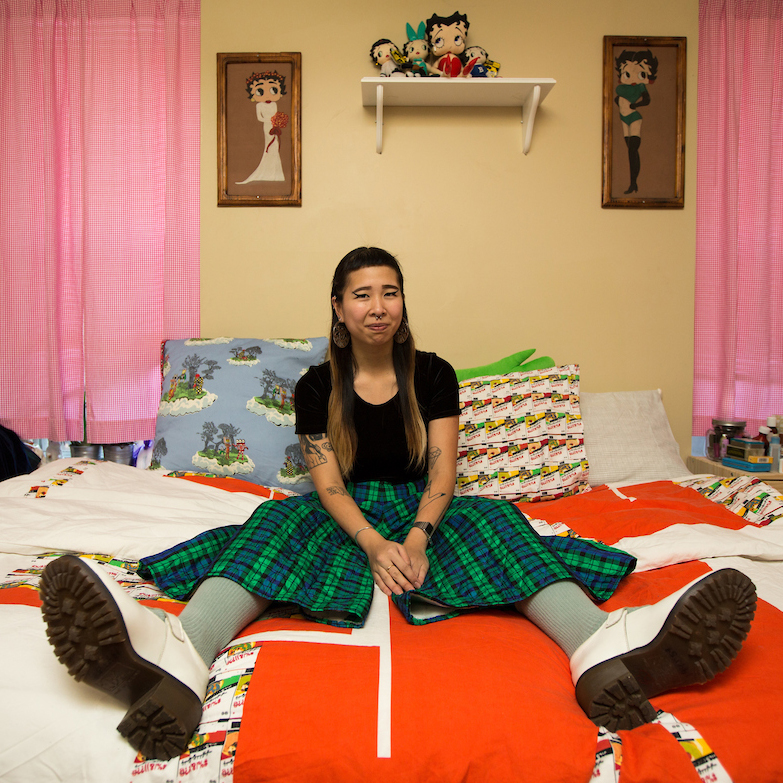 Cocoa Mahoney
Cocoa Mahoney 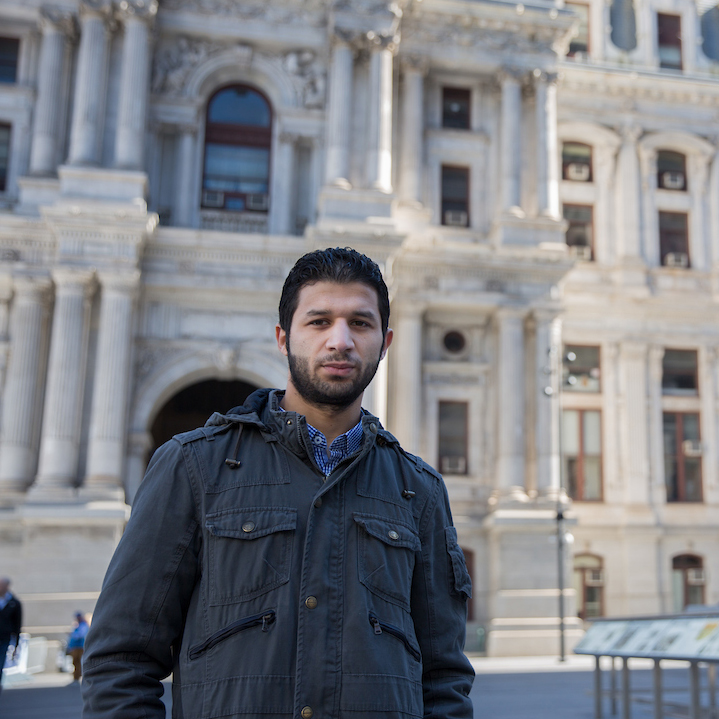 Yasser Allaham
Yasser Allaham 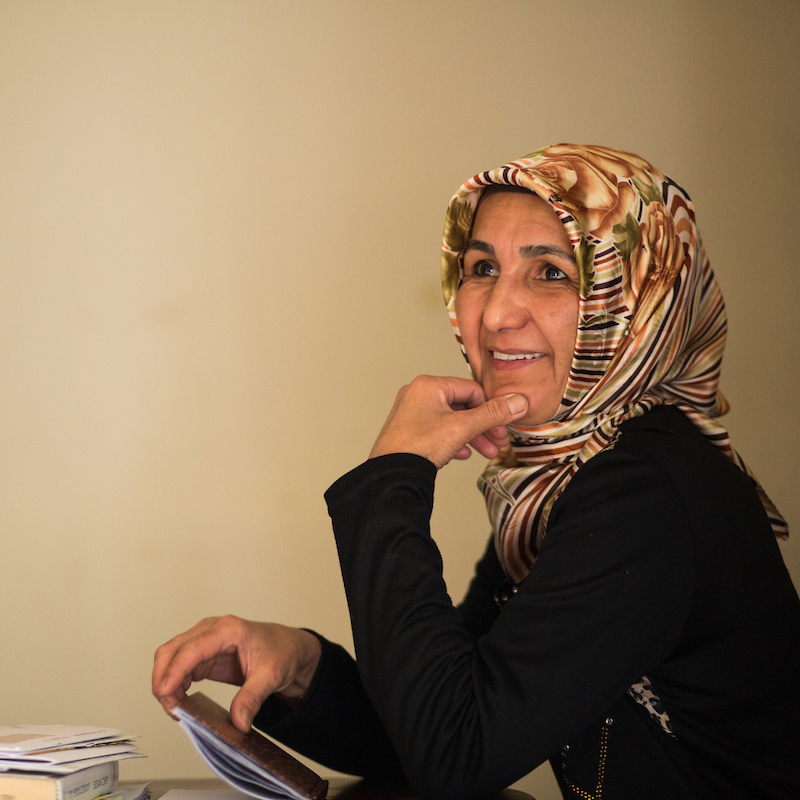 Gulnora Ravshan
Gulnora Ravshan  “Floating Outsider”
“Floating Outsider” 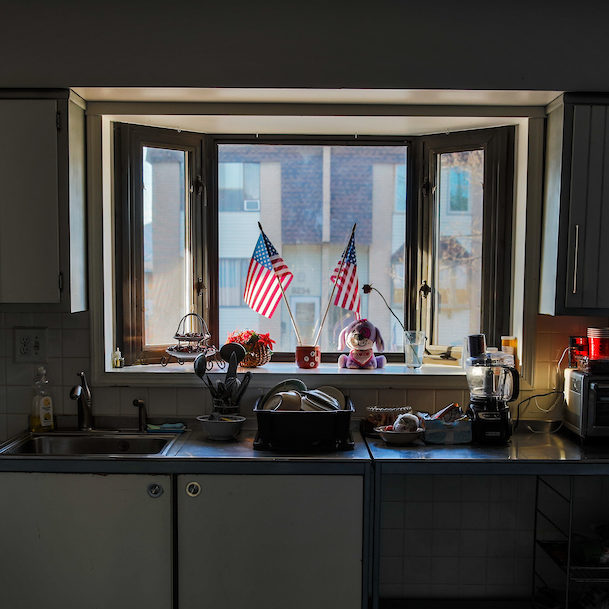 “Ahmad” & “Zainab”
“Ahmad” & “Zainab”  Maria Turcios
Maria Turcios 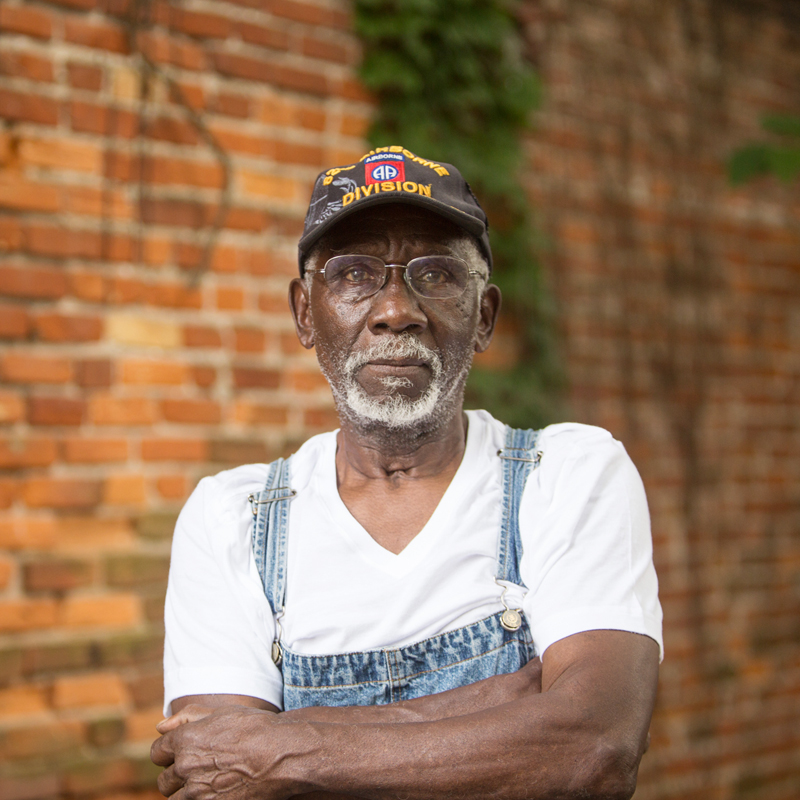 Lafayette El
Lafayette El 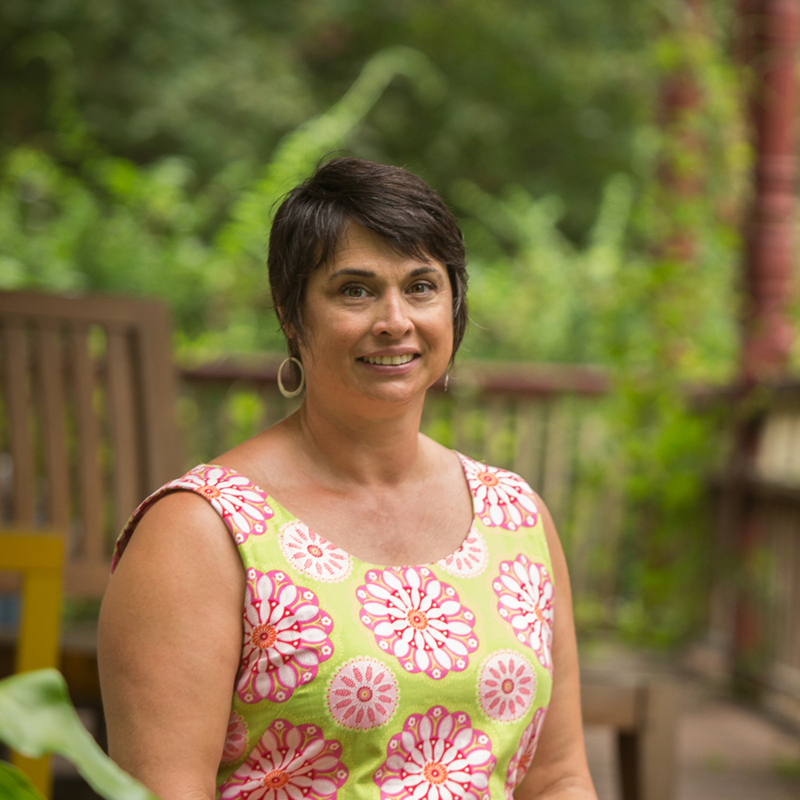 Tara O’Brien
Tara O’Brien  Sophia Simpson
Sophia Simpson